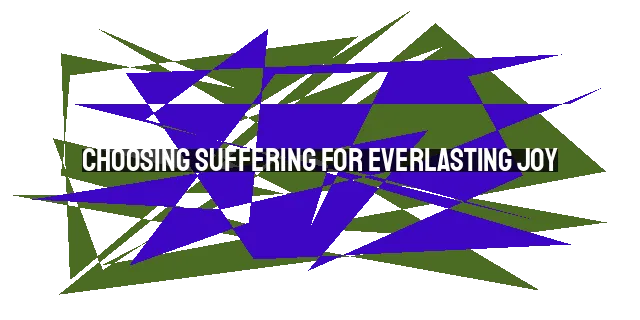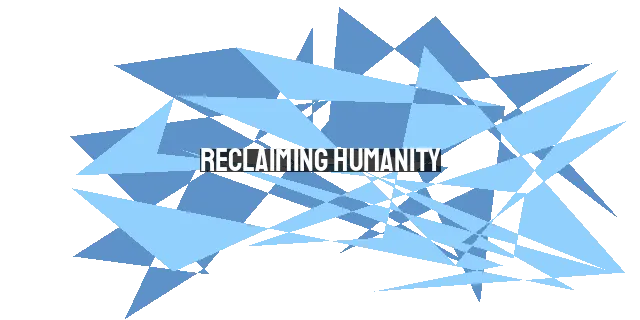The Shack: Finding Healing and Hope in the Midst of Pain
The Shack and Our Pain
The Shack is a book and movie that has captured the hearts of millions of people around the world. It tells the story of a man named Mackenzie Phillips, who is struggling with the overwhelming pain of losing his daughter to a brutal murder. In his grief, Mack receives a mysterious invitation to meet with God in a shack in the woods. What follows is a powerful encounter with the Trinity that helps Mack confront his pain and find healing.
The book and movie have sparked a lot of controversy and debate among Christians. Some have praised it as a powerful and moving portrayal of God's love and grace. Others have criticized it as a dangerous and heretical distortion of Christian theology. So what should we make of The Shack? What does it say about our pain and how we should respond to it?
The Theology of The Shack
Before we can answer those questions, we need to understand the theological perspective that underlies The Shack. Author William Paul Young is a self-professed Christian who has said that the book is "theology wrapped in story." In other words, he is using fiction as a way to explore and communicate his beliefs about God and the world.
So what are those beliefs? At its core, The Shack presents a theology that is deeply influenced by the idea of relationality. Young believes that God is fundamentally relational, and that our relationship with him is the key to understanding our identity, purpose, and destiny.
This relationality is expressed most powerfully in the book's portrayal of the Trinity. In The Shack, God is not a distant and aloof deity, but a loving and compassionate Father who is always present with us. Jesus is not just a historical figure, but a friend and mentor who walks alongside us in our pain. And the Holy Spirit is not an abstract force, but a personal guide who leads us into truth and freedom.
But The Shack goes beyond just presenting a relational God. It also suggests that God is not the cause of our pain, but rather the solution to it. The book portrays God as a loving parent who suffers alongside us and works to bring healing and restoration to our brokenness.
At the same time, The Shack challenges traditional Christian views of sin and judgment. The book suggests that sin is not primarily a moral failing, but a relational one. Sin is not just breaking God's rules, but breaking our relationship with him and others. And judgment is not a punitive act of God, but the natural consequence of our choices and actions.
Finally, The Shack offers a vision of universal salvation that is based on God's love and grace, rather than our works or beliefs. In the book, there is no hell or eternal punishment, but rather a process of healing and growth that leads all people to fullness of life in God.
The Pain of The Shack
So what does The Shack say about our pain? First and foremost, it acknowledges that pain is a universal human experience. We all suffer in some way, whether it's physical, emotional, or spiritual. Pain can be a result of our own choices and actions, or it can be inflicted on us by others or by circumstances beyond our control.
But The Shack also suggests that pain is not the end of the story. It can be a doorway to deeper relationship with God and others, a catalyst for growth and transformation, and a means of experiencing God's love and grace in new ways.
One of the key themes of The Shack is the idea of "the great sadness." This is the overwhelming grief and loss that Mack experiences after the death of his daughter. But as he encounters God in the shack, he learns that his sadness is not a sign of weakness or failure, but a natural and necessary part of the human experience.
Through his conversations with Papa, Jesus, and Sarayu, Mack discovers that God is not distant or indifferent to his pain, but intimately involved in it. God grieves with him, comforts him, and ultimately leads him to a place of healing and forgiveness.
Biblical Responses to Pain
So what does the Bible say about our pain, and how does it compare to The Shack's perspective? Let's explore a few key passages and themes.
The Suffering of Job
The book of Job is one of the most profound and challenging explorations of human suffering in the Bible. Job is a righteous man who is suddenly struck with a series of calamities - he loses his wealth, his children, and his health. Throughout the book, Job wrestles with his pain and with God's apparent silence in the face of it.
But despite his anguish, Job never loses faith in God. He continues to trust in God's goodness and sovereignty, even when he doesn't understand what God is doing. And in the end, God reveals himself to Job in a powerful and humbling way, reminding him that he is not alone or abandoned in his pain.
The story of Job reminds us that pain is not a sign of divine punishment or abandonment. It is a part of the human experience, and God is present with us in the midst of it, even if we can't always see or feel his presence.
The Suffering Servant
Isaiah 53 is one of the most profound prophecies of the suffering and death of Jesus Christ. The passage describes a mysterious figure who will bear the sins and sorrows of the world, and who will be despised and rejected by his own people.
The suffering servant reminds us that God is not distant or aloof from our pain, but has entered into it fully and completely in the person of Jesus Christ. Through his death and resurrection, Jesus has conquered sin and death, and offers us the hope of eternal life and healing.
As the writer of Hebrews reminds us, Jesus is not just a sympathetic friend, but a high priest who has experienced our pain and temptation and is able to help us in our time of need (Hebrews 4:14-16).
The Hope of Resurrection
The ultimate hope of the Christian faith is the resurrection of the dead and the renewal of all things. As Paul writes in 1 Corinthians 15, "For as in Adam all die, so also in Christ shall all be made alive" (v. 22).
This hope is not just a vague and distant possibility, but a concrete and certain reality. Jesus himself has been raised from the dead, and has promised to raise us up as well. As Paul writes, "But in fact Christ has been raised from the dead, the firstfruits of those who have fallen asleep" (v. 20).
This hope of resurrection gives us the strength and courage to face our pain and suffering with faith and hope, knowing that our present struggles are not the end of the story. As Paul writes elsewhere, "For I consider that the sufferings of this present time are not worth comparing with the glory that is to be revealed to us" (Romans 8:18).
Conclusion
In the end, The Shack is a powerful and moving portrayal of God's love and grace in the midst of our pain and brokenness. While it may not line up perfectly with traditional Christian theology, it offers a compelling and hopeful alternative that can help us find healing and wholeness.
But ultimately, our hope and confidence must rest not in a book or a movie, but in the living God who has revealed himself to us in Jesus Christ. As we face our pain and suffering, may we find comfort and strength in the knowledge that God is with us, that he loves us, and that he will ultimately make all things new.



POST COMMENT
For post a new comment. You need to login first. Login
COMMENTS(0)
No Comment yet. Be the first :)